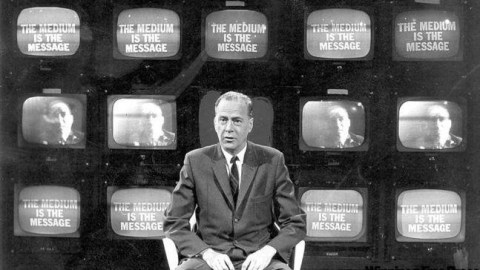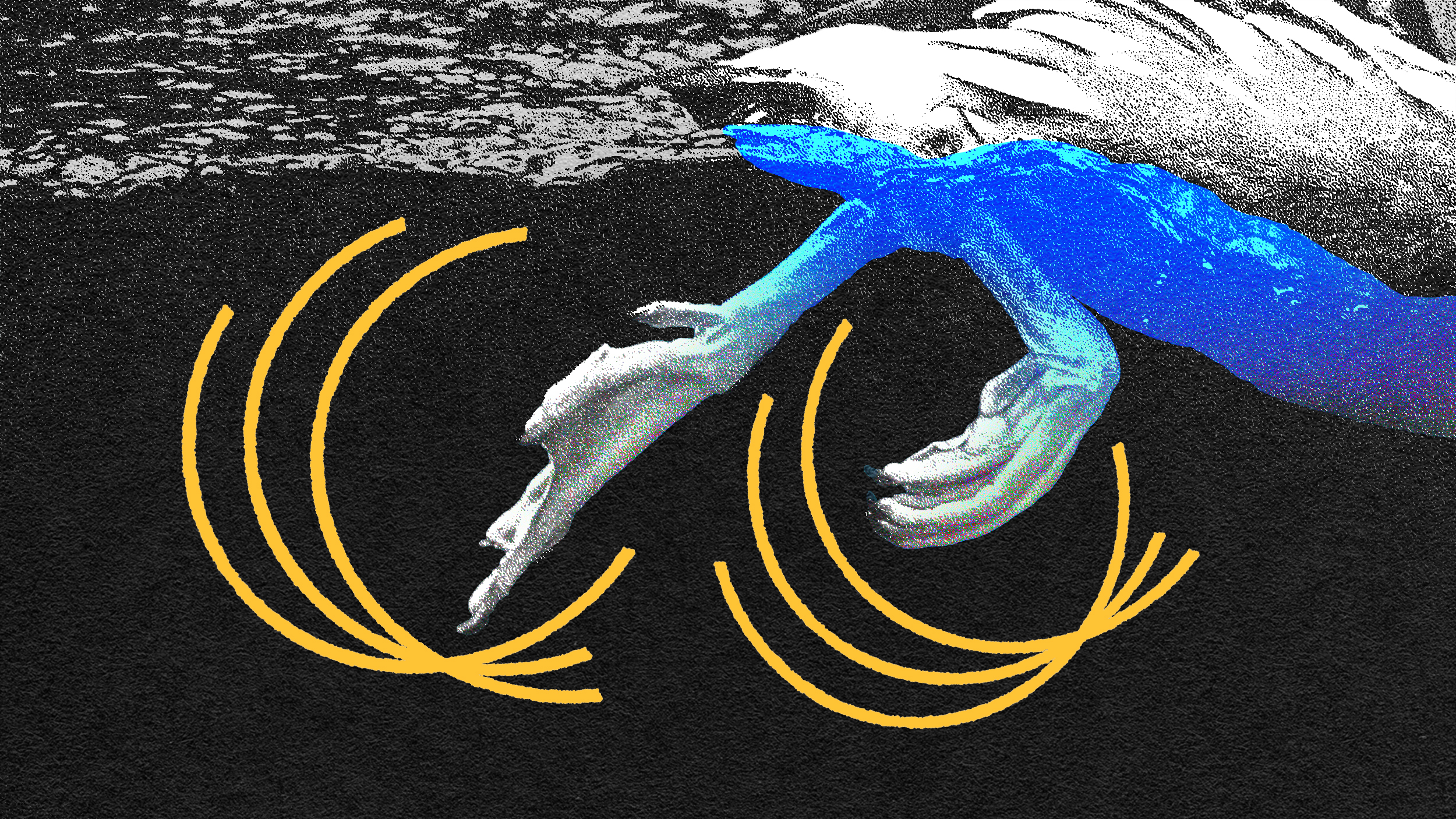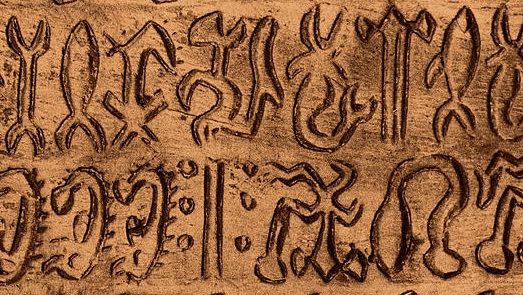How books irrevocably changed culture, according to media philosopher Marshall McLuhan

- Marshall McLuhan said the advent of printed books gave way to print culture, of which he believed went on to shape and mold Western culture’s psyche.
- McLuhan is well known for his coined phrases, such as “the medium is the message” and the “Global Village.”
- Misunderstood by many at his time, his prescient prediction of the internet and other implications of electronic culture are issues we still need to address and explore today.
For a brief period of time during the ’60s and ’70s, Marshall McLuhan was a household name. He had an incredible sway and extraordinary influence on American culture. McLuhan was also highly influential in many psychedelic and counterculture circles. Much of his influence in any major intellectual sphere died out in the early ’70s, however.
As we’ve settled into digital culture we know today, McLuhan’s theories and ideas tend to pop up — decades since they were first uttered — for renewed debate and exploration. Some of them are more relevant than ever.
Weaned off the prose of James Joyce, McLuhan was a Joycean scholar, literary critic and, in a greater sense, a medievalist scholar before taking the world stage as a media savant. One of McLuhan’s main theories was that the creation of the printing press led to the Industrial Revolution, and subsequent print media would be the ethereal cultural catalyst and guiding force that brought upon the fragmented and alienated world humans exist in today.
McLuhan had believed that the Age of Print Culture was giving way to a new electronic culture. Many years ahead of his time, and well-read to the umpteenth power, McLuhan’s words take a lot of effort to understand.
Gutenberg’s Galaxy and print culture
Running throughout much of McLuhan’s philosophy was a certain kind of technological determinism. This is the idea that certain media technologies can be more important in framing how the public thinks than the content or context they hold.
Media theorist Neil Postman elucidated this concept quite clearly when he stated,
The printing press, the computer, and television are not therefore simply machines which convey information. They are metaphors through which we conceptualize reality in one way or another. They will classify the world for us, sequence it, frame it, enlarge it, reduce it, argue a case for what it is like. Through these media metaphors, we do not see the world as it is. We see it as our coding systems are. Such is the power of the form of information.
McLuhan’s famed “the medium is the message,” encompasses this ideal when he explained that the printing press, since its inception by Johannes Gutenberg in 1440, immensely shaped and influenced culture, particularly with the advent of books.
When asked about the impact of the invention of the printing press in an interview, McLuhan gave a number of examples of the unexpected consequence of this technology. Of them, was the rise of readerships — audiences.
It created — almost overnight it created — what we call a nationalism, what in effect was a public. The old manuscript forms were not sufficiently powerful instruments of technology to create publics in the sense that print was able to do — unified, homogeneous, reading publics.
Understanding McLuhan’s work has become more important than ever in the dawn of an electronic and interconnected global culture. Through his words we can better acknowledge the influence much older and ancient mediums — in this case, printable type and subsequently books — have had on local and global culture. By this, we can better understand where we are right now. Perhaps even in regard to fake news and widespread misinformation.
As McLuhan goes on to say in his seminal work, Understanding Media: The Extensions of Man:
The electric technology is within the gates, and we are numb, deaf, blind, and mute about its encounter with the Gutenberg technology, on and through which the American way of life was formed. It is, however, no time to suggest strategies when the threat has not even been acknowledged to exist.
I am in the position of Louis Pasteur telling doctors that their greatest enemy was quite invisible, and quite unrecognized by them. Our conventional response to all media, namely that it is how they are used that counts, is the numb stance of the technological idiot. For the ‘content’ of a medium is like the juicy piece of meat carried by the burglar to distract the watchdog of the mind.
Predicting the Global Village and new age of the internet
Whether it’s a Twitter pitchfork mob bathing in the madness of a digital crowd, or instantaneous “news” and other global happenings, we’re not entirely prepared for this electronic medium and we’re still reeling from a culture and world intensely defined by print culture. Many of these new problems and pitfalls were foreseen by McLuhan.
The world has become a computer, an electronic brain…. And as our senses have gone outside us, Big Brother goes inside. So, unless aware of this dynamic, we shall at once move into a phase of panic terrors, exactly befitting a small world of tribal drums, total interdependence, and superimposed co-existence. Terror is the normal state of any oral society, for in it everything affects everything all the time…. In our long striving to recover for the Western world a unity of sensibility and of thought and feeling we have no more been prepared to accept the tribal consequences of such unity than we were ready for the fragmentation of the human psyche by print culture.
Along with predicting this simultaneous connectivity and paradoxically disconnect through our new communication mediums, McLuhan also called for us to look into our past and waning influence of print culture into this new age.
McLuhan is a rich source for understanding media, our modern technology and developing a taste for new ideas. Time has been on McLuhan’s side and as we delve deeper into the Electronic Age, more and more of what he said may ring true.





